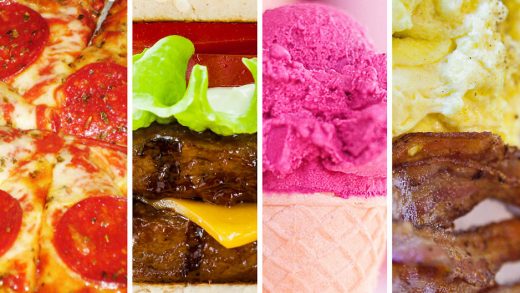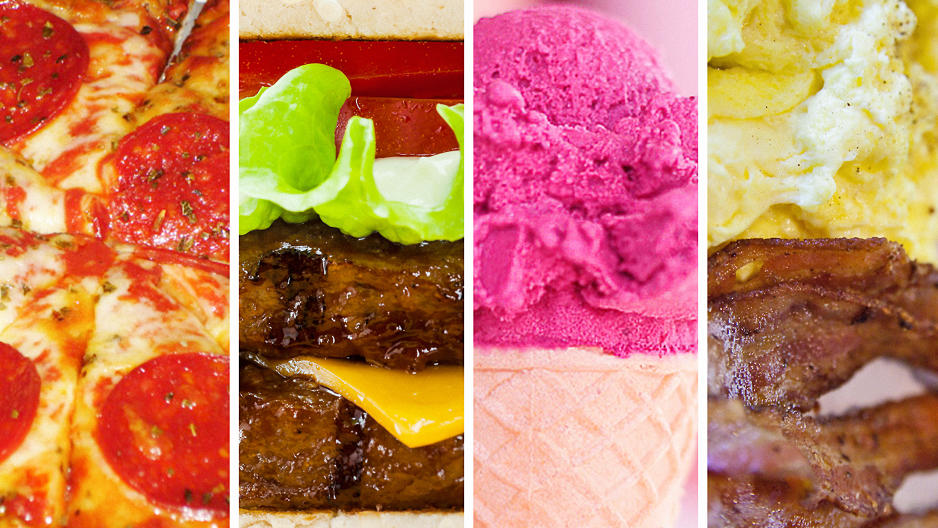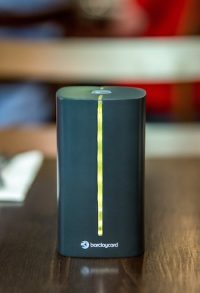Chipotle’s Future: Pizza, Burgers, Dessert, Breakfast?
Will you soon be ordering churros from Chipotle? What about a breakfast burrito?
On Tuesday, Chipotle posted its third-quarter earnings—and announced a big shift in its direction, as the “Food with Integrity” restaurant chain continues its struggle to regain sales and customer faith following a series of damaging food-safety incidents last year. The company reported that same-store restaurant sales dropped 21.9% for the quarter, lower than analysts’ expectations, as revenue sunk 14.8% year-over-year and net income fell 94.6%. In an earnings call, Chipotle co-CEOs Steve Ells and Monty Moran, along with their executive team, talked up a number of new changes intended to spur a faster recovery, including the potential for new menu items (dessert!) and the end of future ShopHouse restaurants, its concept noodle joint. Reacting to the news, the company’s stock dropped Wednesday morning to its lowest levels since 2013.
Having spent the past seven months reporting on Chipotle for our new feature profiling the company and its struggles that hit newsstands this week, I was surprised by some of these announcements. It’s healthy that Chipotle is working to address concerns and turn its business around—investors have long called for more menu innovation, after all. But some of these decisions seem reactive, at odds with what Ells and his leadership team conveyed to me mere months ago.
Chipotle Dessert?
When I met with Ells in mid-July, for instance, he hadn’t changed his tone on expanding Chipotle’s meal offerings, despite the introduction of chorizo, only the second new item in the company’s 23-year history. Chipotle has resisted cries for new menu items centrally because Ells, a classically trained chef, preferred to keep his menu simple and focused. Chorizo seemed to be an exception, added to refresh customer interest following the company’s food-safety woes.
So it was surprising to hear Ells on Tuesday announce, “We’re also currently testing two different desserts, and we hope to select one to offer in the near future.” He indicated the company was actively exploring “thoughtful menu development” to attract new and lapsed customers. This may sound like a small change, but in Ells’s world, it represents a substantial departure from his food philosophy. The idea of desserts was something Ells joked with me about in particular when we met. “People from the very beginning said that I would have to expand the menu—that it was far too limited with burritos and tacos,” he explained. “They said I needed desserts. And I needed coffee. And I needed chimichangas! I argued instead [that we should] just focus on making our existing offering better, not only through better cooking techniques and better training of our crew, [but also] better hospitality and more efficient equipment.”
In other words, dessert, coffee, and chimichangas? Not a chance. What’s more, on the earnings call Tuesday, Ells also seemed to suggest that breakfast might now be on the table. “There have been suggestions that we add breakfast,” he said, before clarifying to analysts that to do so would require more in-restaurant efficiencies. But he continued, “I’m not saying that we won’t add breakfast.”
This development also came as a surprise, since Chipotle had explored a breakfast option years ago, when it spent around 18 months cycling through various egg-cooker prototypes before giving up on the effort. “We chased that to no avail and spent who knows how much money,” a former executive says. Ells even told me the breakfast burritos Chipotle tested in select markets, such as at Dulles International Airport, failed to resonate with customers. “We had a breakfast burrito with scrambled eggs and crispy potatoes,” Ells recalled. “But people were like, ‘Oh yeah, that looks good. Can I just have a chicken burrito though?’ I’m like, ‘But it’s 7 a.m.! Don’t you want eggs?’ So we started offering our regular menu, and the other [breakfast] stuff just sat there.”
So why the sudden about-face, especially if Ells was skeptical of meal items like dessert and breakfast burritos before? Because chorizo appears to be seeing some success in the market—Chipotle revealed that chorizo now represents 7% of entree sales, roughly the share that carnitas have traditionally owned—and the company is in dire need of more wins. (When Taco Bell added breakfast in 2014, the chain grew overall sales 6% in its first year.) It also means Ells is rapidly becoming less dogmatic in his belief in keeping Chipotle’s menu stripped down. “That stuff works when people say, ‘Oh, something new, I want to try that,’” Chipotle’s chief creative officer Mark Crumpacker told me. “That’s a page we pulled out of the traditional fast-food playbook.”
Losing Focus
Since the announcements, some have wondered whether Chipotle is losing its once-sharp focus. “One of the hallmarks of the Chipotle business is how simple you’ve kept the operation and how focused you’ve been,” said Robert W. Baird analyst David Tarantino, who asked Ells on the earnings call why Chipotle doesn’t just get “back to the basics.”
Ells’s response? Chipotle, he said, would do both: “Focus on the fundamentals” and “try new things.” But when he tried to explain how the company would pull this off, his answer seemed to confuse Tarantino. “It’s important that when you add something to the restaurant, you take something away,” Ells said, “although with the addition of new menu items, we are not going to take away other menu items.”
Instead, he continued, Chipotle would make this all work by creating more efficiencies at the restaurant level. Crumpacker jumped in to clarify Ells’s position. “I wouldn’t worry that we’re going to slip into the traditional fast-food model of introducing multiple new menu items,” he said, stressing that Chipotle would only add new items “every now and then.”
Also on the earnings call, Chipotle announced that it was ceasing further investment in Shophouse, its Southeast Asian-inspired restaurant concept, though the company stopped short of saying it would shut down the chain’s 15 locations altogether. Shophouse’s cuisine, Ells said, was not able to “attract sufficient customer loyalty.” Instead, Ells touted the potential of Chipotle’s pizza and burger concepts, Pizzeria Locale and Tasty Made.
On the one hand, this demonstrates a measure of discipline: If the Shophouse brand isn’t working for Chipotle, it makes sense to explore “strategic alternatives,” as Ells put it, which suggests a sale might be in that five-year-old chain’s future. But it feels a bit backward to indicate at the same time, in the context of avoiding distractions, that the company will instead turn its attention to selling pizza and burgers (in addition to Chipotle’s own new menu items).
When I asked Ells about Shophouse and the pressure on Chipotle’s other restaurant concepts over the summer, he seemed to gravitate more toward the “back to the basics” mentality that Tarantino referenced. “First, the No. 1 priority is to get Chipotle back on track,” he immediately responded. Shifting Chipotle’s development focus to newer, unproven concepts—especially ones in saturated markets—seems to be a shift away from this thinking, at least before Chipotle has progressed more in its recovery.
And that’s only the start of what’s coming for Chipotle. Executives on the call also promoted a slew of other initiatives, such as new mobile ordering technology, expanded delivery and catering options, national TV advertising, and overseas expansion.
Ultimately, pinning the future success of these new initiatives on more in-restaurant efficiencies feels like a fraught strategy. Among restaurant-level workers, it’s commonly understood that the more responsibilities that corporate adds, the more the burden falls on their shoulders. This is especially true for general managers, who are not only still absorbing additional food-safety protocols, but will also soon be expected to roll out new menu items, train staff to handle the new mobile ordering technology, and seamlessly incorporate these new delivery and pickup options—all while still selling Chipotle burritos as quickly as ever.
This approach seems to represent Ells’s current philosophy about fast food. As he told me back in July, “I want to have my cake and eat it too!”
Related Video: From Crises to Commercials
Fast Company , Read Full Story
(25)














